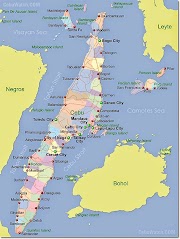The Extent of the Minerals Resource Rent Tax
Growing criticism from the public has affected the Australian Labor government’s recent decision to link the reduction in corporate tax rates because of the Minerals Resource Rent Tax.
The issue stems from the idea of the Labor government’s realization that not enough profits were going to the state government from coal and iron ore mining. While corporation tax is paid to the state government from profits earned from corporate operations, the mining industry continues to flourish in the communities leading to so much wealth and affluence in these areas.
Because of this, the government seeks to impose the Minerals Resource Rent Tax that imposes a further tax on profits from these industries. The controversy arises from the mining industry’s claim that they are paying more than enough in taxes. The current tax on corporate income is pegged at thirty percent on actual profits. These taxable profits is still subject to varied interpretation, as the Australian Institute of Chartered Accountants apply that real corporate tax rates are in reality between 23% and 27%, a much lower rate compared to what is pegged under the law.
What the government proposes is a reduction of the corporate income tax rate to just 29% and then imposing the Minerals Resource Rent Tax. This would result in a net increase in collected taxes from the mining industry because of these two laws. Other proposals include a complete lowering of the corporate income tax in general to just 25% and instead taking the difference from other tax sources. This would include reduction of deductions and charges that can be deducted from gross income, creating greater taxable profits. This would help in not only increasing taxes, but simplifies the taxes altogether.
With this charted course, there is an expected backlash from the mining companies as it foresees that with the lower corporate income tax and the increased mining tax means a greater financial obligation is placed on mining companies while other companies enjoy lowered requirements. While this is the popular choice, many fail to realize that this kind of operations is very capital intensive. Increasing the tax may eventually hurt the goose that lays the golden egg.
Before such actions become reality, further study needs to be done on the future of the mining industry. While at the moment mining is in its heyday, like many other non-replenishable industries, the hard times may be just around the corner. Furthermore, imposing more obligations may eventually make the business to onerous, even if the profits are quite dramatic.








0 Comments